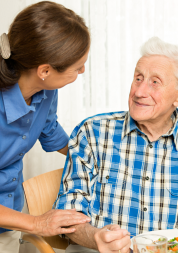Healthwatch LGBT+ Mental Health Report

Professionals "not believing”, “not being taken seriously”, “lack of empathy”, “judged".
What we did
A Stonewall survey had highlighted that half of lesbian and bisexual women and a third of gay and bisexual men reported a negative experience of accessing healthcare.
According to a The National Institute for Mental Health in England report, LGBT+ people are:
- At higher risk of suicidal behaviour than non-LGBT+ people
- 50% are more likely to develop depression and anxiety than the rest of the population.
Healthwatch Wandsworth launched a survey in 2016 which was compiled to understand the challenges and needs of the LGBT+ community with mental health problems in Wandsworth.
The Survey was advertised on social media and websites and taken to various outreach events.
Key Findings:
- There is not enough access to the appropriate support systems and unmet needs for the LGBT community.
- Where services are available, members of the LGBT community feel that professionals in these services lack the understanding and experience and experience misunderstanding and judgement when they use them.
- There is inadequate access to appropriate support systems and unmet needs for the LGBT community not only in Wandsworth but also in London more generally.
- There are limited services available and these are difficult to access and require more funding to address issues raised.
- The wider community, including schools, could do more to increase awareness, offer support and signposting.
- The perceived stigma and discrimination attached to mental ill health and the LGBT community creates a fear of accessing services.
- Respondents emphasise that poor access to information on LGBT+ mental health is isolating and results in the LGBT+ community being reluctant to access support through fear of discrimination.
Recommendations:
- Respondents stressed that better communication and awareness-raising campaigns are crucial to combating discrimination and isolation and to bring an end to the stigma.
- People from the LGBT community need to be able to have confidence that services are appropriate to their particular needs, including understanding and discretion when needed.
- Respondents called for an increase in understanding of LGBT issues, within the wider community and most importantly training for health professionals.
- Development of services and funding is needed, particularly for young people.
- The majority of responses to our survey highlighted the need for talking therapies to address LGBT mental health.
- It is important that the services are available when needed before potential problems escalate.
- In addition to the above, a significant number of responses stressed that safe spaces for the young LGBT community (18 and below) are most important, including a need for a specific support service for young people, while others suggested that schools and youth groups should also address LGBT+ mental health.
Downloads
Read the report on the Healthwatch Wandsworth Consultation on LGBT+ Mental Health.
If you need this report in a different format, please email
enquiries@healthwatchwandsworth.co.uk or call 020 8516 7767.

